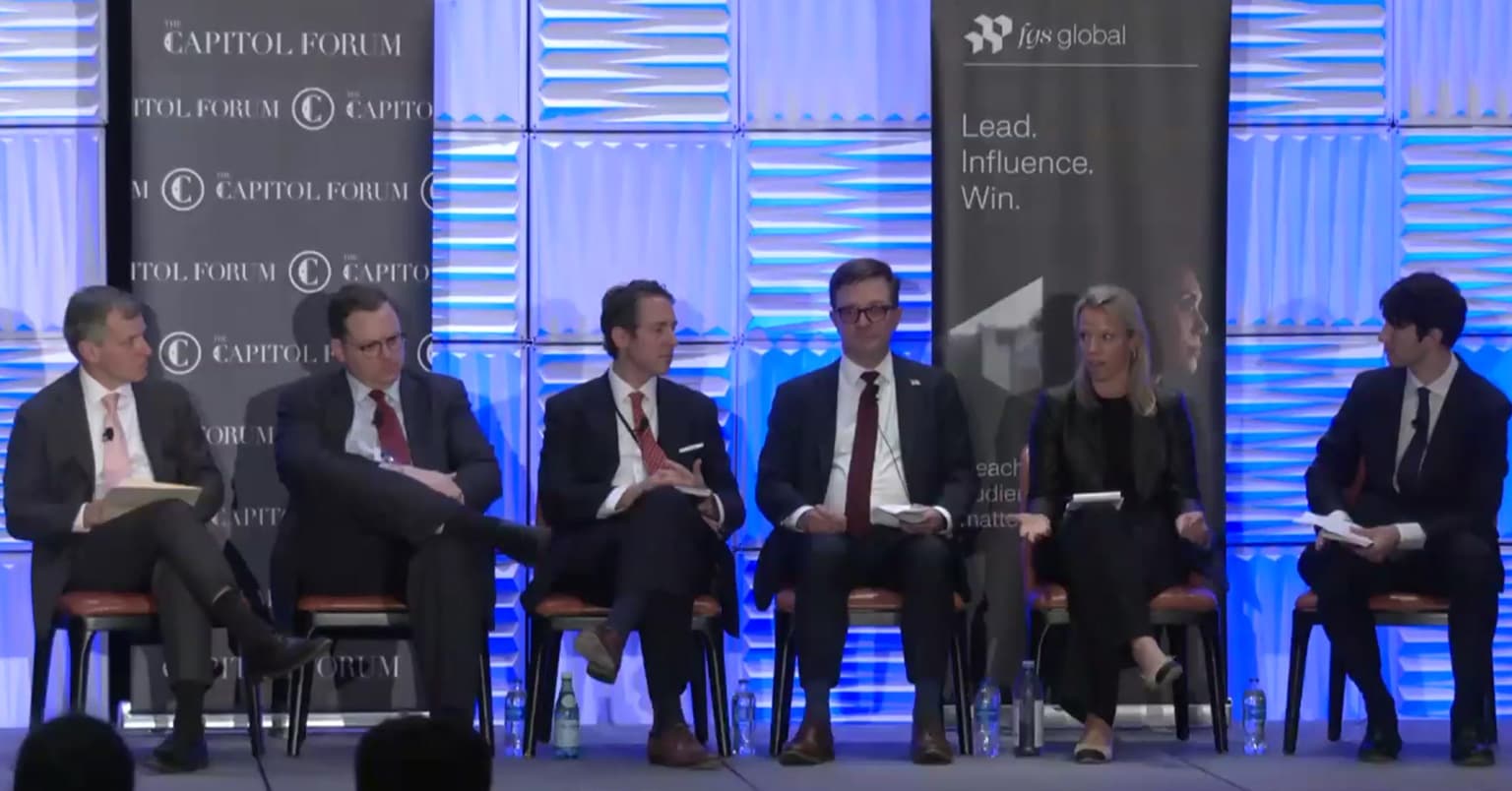In a wide-ranging and insightful Q&A session in Washington D.C., enforcers from the Department of Justice and Federal Trade Commission came together to unpack the key issues their agencies are tackling as the Trump 2.0 administration settles into full swing, offering a clear view into what not only companies, but the American people can expect from antitrust policy over the next four years.
The panel, which featured Emma Burnham, Daniel Glad and George (Chip) Nierlich from the DOJ as well as David Shaw from the FTC, opened with a level-setting on the role of the agencies, which, according to Daniel Glad, is to fight fraud, waste and abuse – an apolitical aim that has spanned administrations. And importantly, one that has direct impacts on the American people.
For example, Emma Burnham noted that whether it's bid-rigging for public school contracts in New York City or fraudulent sports equipment procurement in Mississippi and Louisiana, the DOJ is aiming to ensure fairness in government transactions to protect local communities. They're also looking beyond “kitchen table” issues to large-scale cases like defense contracts worth over $75 million, noting that consolidated industries like defense can be especially prone to collusion.
With antitrust, the sentiment is the same: Burnham confirmed that antitrust remains a priority for this administration in large part because it saves American workers, consumers and taxpayers money. Further, she believes it is essential to national security and the American way of life.
But effectively protecting those interests requires efficiency. Chip Nierlich explained that the DOJ intends to focus on stopping bad transactions while making sure they get out of the way quickly on those that don’t raise competitive concerns. He also re-emphasized the value of remedies for moving processes forward more quickly, but echoed AAG Gail Slater’s caution that only remedies that are robust, structural and “consistent with the idea that enforcement is a scalpel instead of a sledgehammer” will be accepted.
Along those same lines, David Shaw said that the FTC is not hostile to M&A per se but rather will balance vigorous enforcement with quickly backing away from non-problematic deals. Further, they will bring back early termination and continue to issue 2nd requests, looking to expedite this process where applicable.
Still, certain industries like healthcare, big tech and agriculture remain key areas of scrutiny, given their significant influence on daily life and the economy. After all, Shaw noted in closing, everyone at both agencies is committed to doing their part to improve the lives of individuals by fostering accountability and fairness in the marketplace.
